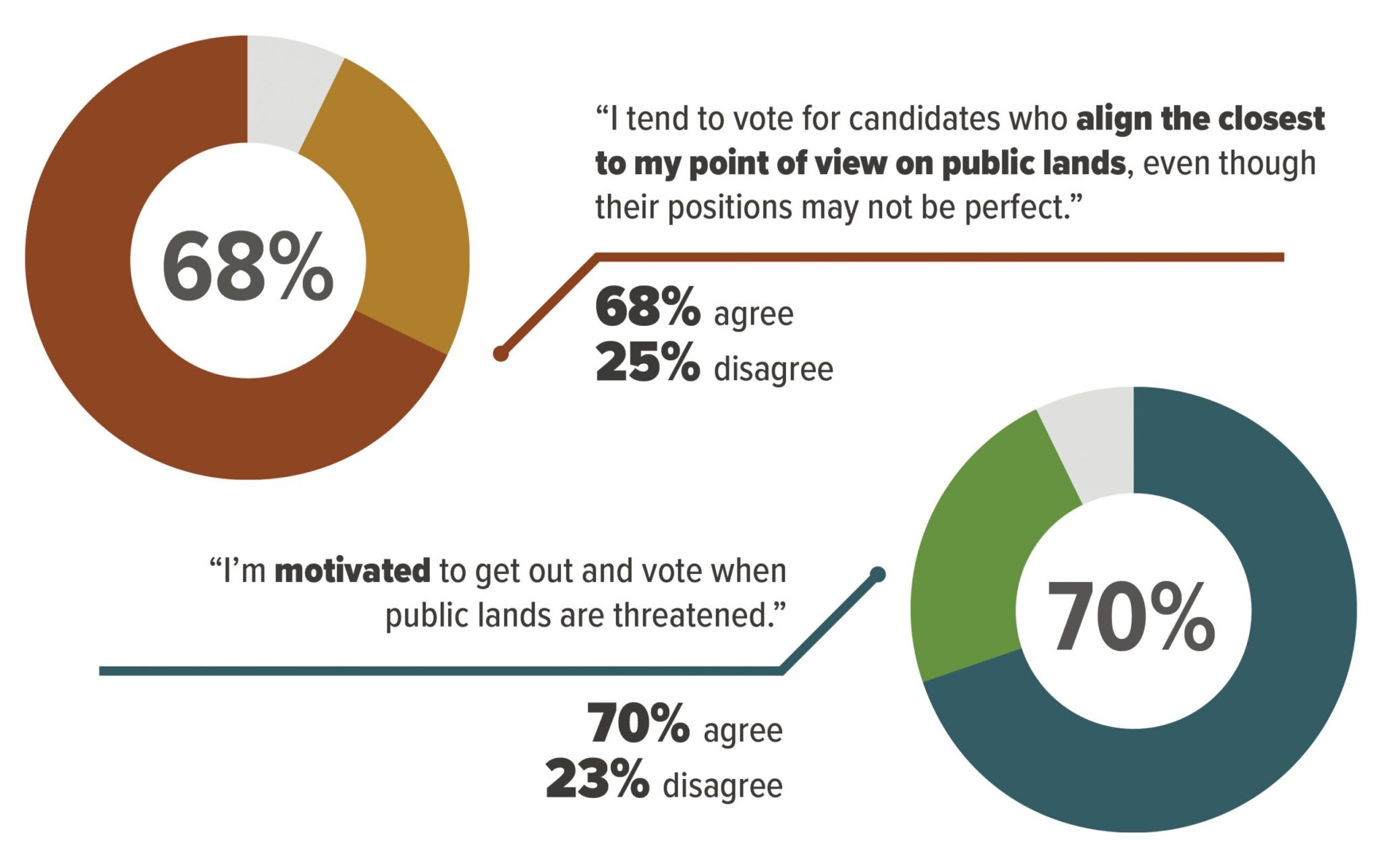Meet the Outdoor Voters


What do millennial parents and empty-nesters have in common? Where do casual weekend hikers and committed hunters and anglers see eye-to-eye? What connects people who get their information from social media with those who prefer to watch cable news?
They all vote the outdoors.
Polling from our Winning the West campaign over the past few election cycles consistently shows that voters in Mountain West swing states like Arizona, Colorado, Montana, Nevada, and New Mexico support a balanced approach to managing conservation, recreation, and responsible energy development on our public lands. More importantly, they are motivated to vote on the issue and look for candidates who share their values.
New for this year, our Winning the West modeling gives us a closer look at who makes up this growing outdoor voting bloc that is gaining influence in close Mountain West elections.
Seven groups of persuadable voters — millennial parents, empty nesters, dedicated anglers and hunters, casual outdoor recreation enthusiasts, cable news watchers, social media users, and ticket splitters — showed especially strong outdoor voting tendencies. The voters in these groups are also typically less partisan and less ideological than traditional party-preference breakdowns. They are exactly the people who candidates looking to win elections in Mountain West states will want to reach and connect with.
Let’s get to know them.
Millennial Parents are voters ranging in age from 22 to 36, with kids. They make up about 6 percent of our overall voter sample but are a group that continues to grow. Every year, a million new sets of parents are added to this group. They are especially focused on the future when it comes to public lands.
Empty Nesters are baby boomers with no kids left at home. Their numbers are substantial, as they make up half of our voter sample. They are typically nearing retirement or already retired, and outdoor recreation is an important part of what draws them to the Mountain West.
Hunters and Anglers are the most conservative of the seven groups we identified. In fact, they narrowly supported President Trump in the 2016 election. For them, hunting and fishing is not a hobby, it’s a way of life. They care deeply about conserving wildlife populations and maintaining access to public lands.
Casual Outdoor Enthusiasts make up two-thirds of the Western electorate. They regularly participate in the type of outdoor activities that anyone can do, like nature walks, hiking, camping, picnicking and bird watching. But don’t let these weekend warriors fool you – their passion for the outdoors is full-time.
Cable News Watchers are defined as voters who say they get their news primarily from major cable news outlets. They are a little older and slightly more conservative than the Western electorate generally. Candidates looking to advertise and reach these voters know exactly where to find them.
Social Media Users are made up of any voter who uses social media platforms on a regular basis, the most common being Facebook. This group makes up around three-quarters of the Western electorate. They are learning about and engaging with outdoor issues in new ways online.
Ticket Splitters are voters who regularly vote for candidates of different parties on the same ballot. Between a quarter to a third of Western voters are ticket splits. While they often switch between voting “blue” and “red,” they consistently vote the outdoors. Candidates in the West cannot ignore the ticket splitters. If you win the ticket splitting vote, chances are good that you’ll win the election.
The seven groups of outdoor voters our Winning the West 2018 poll identified are different in many ways. Some could be considered strange bedfellows. But they are united across the board in their strong support for public lands and their motivation to seek and support candidates who share their views.
The outdoor voter groups identified in the poll expect their candidates to take a balanced approach to managing conservation, recreation and responsible energy development. They believe public lands and outdoor recreation are critical to the economy.
For outdoor voters, public lands are not just an issue they care about. It’s an issue that plays an outsized role in driving them to the polls and influencing the candidates they choose.

Outdoor voters reject candidates who take extreme positions on public lands. Shrinking national monuments, along with reducing safety requirements for energy development on public lands, are part of the reason why outdoor voters give the Trump administration low approval ratings on handling public lands issues.
Learn more about the outdoor voters, the issues that motivate them to vote, and the types of candidates and positions they support at: WinningTheWest2018.org.
The Center for Western Priorities is available to provide briefings to candidates and interested parties on the importance of a pro-public lands message for connecting with voters in the Mountain West.
